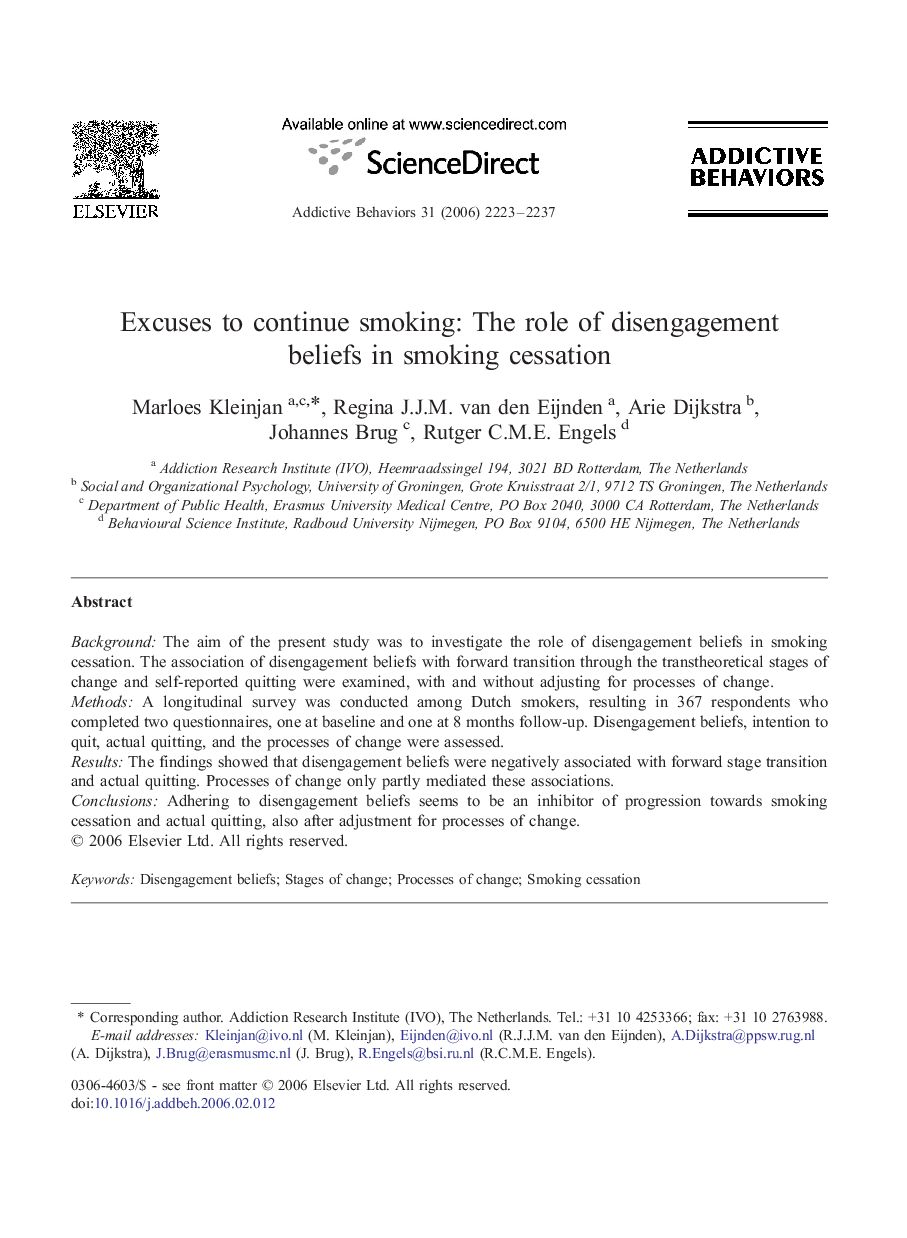| Article ID | Journal | Published Year | Pages | File Type |
|---|---|---|---|---|
| 900640 | Addictive Behaviors | 2006 | 15 Pages |
BackgroundThe aim of the present study was to investigate the role of disengagement beliefs in smoking cessation. The association of disengagement beliefs with forward transition through the transtheoretical stages of change and self-reported quitting were examined, with and without adjusting for processes of change.MethodsA longitudinal survey was conducted among Dutch smokers, resulting in 367 respondents who completed two questionnaires, one at baseline and one at 8 months follow-up. Disengagement beliefs, intention to quit, actual quitting, and the processes of change were assessed.ResultsThe findings showed that disengagement beliefs were negatively associated with forward stage transition and actual quitting. Processes of change only partly mediated these associations.ConclusionsAdhering to disengagement beliefs seems to be an inhibitor of progression towards smoking cessation and actual quitting, also after adjustment for processes of change.
